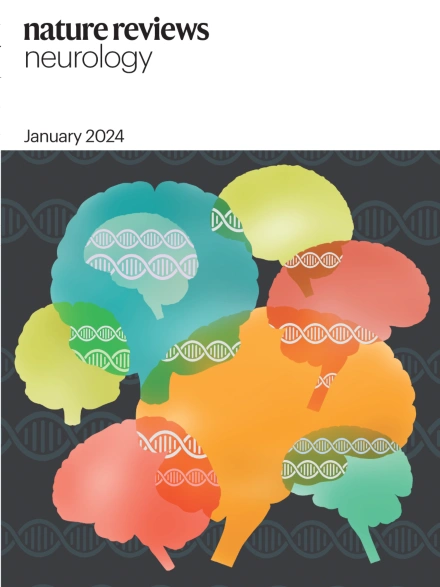Dementia risk scores in diverse populations
IF 28.2
1区 医学
Q1 CLINICAL NEUROLOGY
引用次数: 0
不同人群的痴呆症风险评分
最近一项对不同人群痴呆症风险评分的分析发现,评分的有效性在不同种族群体之间可能存在差异。被广泛研究的心血管风险因素、老龄化和痴呆症发病率(CAIDE)风险评分是根据年龄、性别、教育程度、收缩压、体重指数、胆固醇水平和体力活动来估算中年20年痴呆症风险的,该评分与修改版(mCAIDE)进行了比较,后者包括自我报告的社会人口特征、个人和家庭病史以及情绪等信息。CAIDE 分数越高,非拉丁裔白人、拉丁裔和亚裔美国人患痴呆症的风险就越高,而美国黑人则不然,而 mCAIDE 分数则与所有群体的痴呆症风险有关。研究结果突出表明,有必要对风险评分方法进行评估和修订,以适应所研究人群的特定种族和民族构成。
本文章由计算机程序翻译,如有差异,请以英文原文为准。
求助全文
约1分钟内获得全文
求助全文
来源期刊

Nature Reviews Neurology
医学-临床神经学
CiteScore
29.90
自引率
0.80%
发文量
138
审稿时长
6-12 weeks
期刊介绍:
Nature Reviews Neurology aims to be the premier source of reviews and commentaries for the scientific and clinical communities we serve. We want to provide an unparalleled service to authors, referees, and readers, and we work hard to maximize the usefulness and impact of each article. The journal publishes Research Highlights, Comments, News & Views, Reviews, Consensus Statements, and Perspectives relevant to researchers and clinicians working in the field of neurology. Our broad scope ensures that the work we publish reaches the widest possible audience. Our articles are authoritative, accessible, and enhanced with clearly understandable figures, tables, and other display items. This page gives more detail about the aims and scope of the journal.
 求助内容:
求助内容: 应助结果提醒方式:
应助结果提醒方式:


